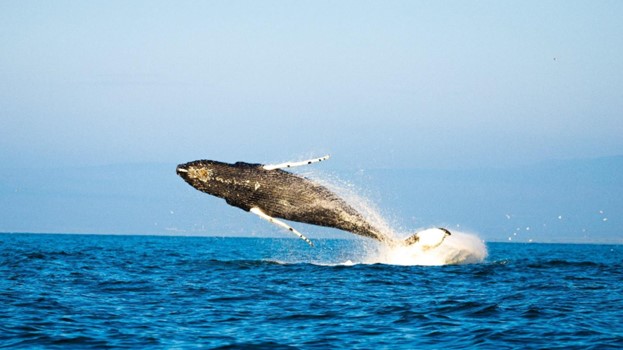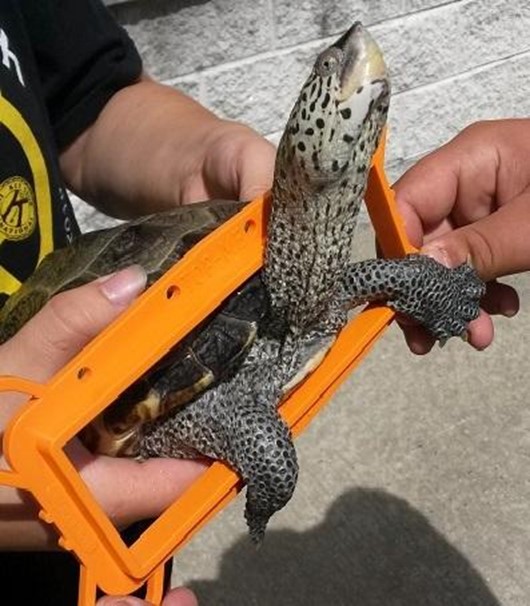
John Wnek of New Jersey is a highly respected figure in the marine conservation community, known for his dedication to environmental research, education, and his work on projects that protect and preserve local ecosystems. With over a decade of experience as an adjunct faculty member at Stockton University and nearly two decades as a research supervisor at the Marine Academy of Technology and Environmental Science (MATES), Wnek has focused on the preservation of marine life and the education of future environmental leaders. His passion for conservation aligns closely with the mission of NOAA Marine Debris grants, which empower projects and individuals like Wnek to tackle some of the most pressing environmental issues, from pollution and habitat degradation to public education and community involvement.
The NOAA Marine Debris Program provides critical funding to initiatives aimed at addressing and reducing marine debris, enabling organizations and researchers to take on ambitious projects that might otherwise be out of reach. These grants focus on innovative, community-centered solutions to prevent and remove debris from marine ecosystems. In the hands of dedicated professionals like John Wnek of New Jersey, the potential of these grants is vast, supporting everything from direct cleanup efforts to educational outreach and environmental research. By enabling large-scale initiatives that drive tangible results, NOAA Marine Debris grants serve as a foundation for real, sustainable change.
John Wnek’s work as co-chair of the Save Barnegat Bay Student Grant Program demonstrates how NOAA Marine Debris grants fuel educational programs that foster a lifelong commitment to conservation. The program encourages students to engage in hands-on research, giving them the tools and resources needed to explore the environmental health of Barnegat Bay. NOAA’s grants thus amplify educational outreach, providing financial backing that allows for the cultivation of future conservationists who understand the importance of environmental stewardship from an early age.
The conservation of the diamondback terrapin—a species native to Barnegat Bay—represents another key focus of Wnek’s research. As co-Principal Investigator of the Barnegat Bay Diamondback Terrapin research project, John Wnek of New Jersey dedicates his efforts to understanding the nesting ecology and habitat needs of these unique turtles. Terrapins face threats from habitat loss, pollution, and bycatch, making conservation efforts critical to their survival. With NOAA Marine Debris grants backing his work, Wnek has the resources to engage in vital research that not only informs conservation practices but also raises awareness about the importance of protecting native species. The funding provided by NOAA extends beyond basic research, supporting outreach that educates the public on terrapin conservation and the broader role of biodiversity in ecosystem health.

The Marine Academy of Technology and Environmental Science (MATES) and its Project Terrapin initiative, led by John Wnek of New Jersey, received a grant from the National Oceanic and Atmospheric Administration Marine Debris Foundation to promote bycatch reduction. The project, titled 'Reducing bycatch through more responsible practices for a sustainable future,' involves collaboration among community partners, experts, and students to develop messaging and resources aimed at reducing bycatch and sustaining the blue crab fishery.
Bycatch reduction devices (BRDs), sometimes referred to as “turtle excluders,” are required under specific conditions in New Jersey. These devices must be placed in the funnels of crab pots fished in water bodies that are 150 feet wide or less during low water. Numerous studies, including a 2018 study conducted at the Marine Academy of Technology and Environmental Science as part of the NOAA Marine Debris Project, demonstrate the effectiveness of BRDs in reducing bycatch. This study found no significant difference in the number of crabs captured with and without BRDs and, importantly, no difference in the number of legal-sized crabs caught in crab pots with or without BRDs. From 2017 to 2019, the derelict fishing gear recovery program encountered and recovered numerous crab pots throughout Barnegat Bay, with 8.7% (n=51) of the derelict pots containing BRDs, based on 586 crab pots where the funnels could be identified.
Encouraging the use of BRDs on crab pots helps reduce bycatch both in real time and in cases where the crab pot becomes lost or abandoned. Compliance, however, remains low in areas where BRDs are required. For instance, while Maryland mandates BRDs on all recreational crab pots, compliance remains below 40% (Radzio et al., 2013). With the provisional requirement in New Jersey, this project aims to raise awareness about BRDs and improve access by partnering with local 'bait and tackle' shops, Jenkinson’s Aquarium, other community partners, and nature centers as BRD distribution locations. The MATES BRD Team, under the guidance of John Wnek of New Jersey, will develop initiatives and implement the project’s messaging. Plans are underway to establish additional distribution points throughout the Barnegat Bay region to support BRD use.
There is ongoing discussion about amending New Jersey’s BRD regulations to enhance their effectiveness; however, promoting current usage remains valuable for reducing bycatch and potentially improving crab capture practices. The Crabbing Responsibly at Barnegat Bay (CRABB) initiative will be expanded to incorporate responsible crabbing practices and informational resources in collaboration with partner organizations and stakeholders in the blue crab fishery.
A significant environmental issue that NOAA Marine Debris grants address is the problem of derelict fishing gear—abandoned nets, lines, and traps that continue to capture marine life unintentionally. John Wnek of New Jersey has spearheaded efforts to remove this debris from Barnegat Bay, enhancing the health and safety of local ecosystems. With NOAA’s grant support, Wnek’s team can remove derelict fishing gear and conduct tests on bycatch reduction devices, specifically for blue crab traps. This initiative exemplifies how NOAA funding enables actionable steps toward a cleaner marine environment. By reducing bycatch and removing harmful debris, these projects directly benefit marine wildlife, restore habitats, and decrease the pollution footprint left by abandoned fishing equipment. NOAA’s support thus translates into both immediate and long-term gains for marine health.
NOAA Marine Debris grants play a pivotal role in supporting community-based conservation projects, empowering local stakeholders to take ownership of their environment. John Wnek of New Jersey has long championed community involvement, working with residents and students alike to raise awareness about marine debris and ecosystem preservation. NOAA’s funding allows for educational initiatives that bring the community together, fostering a shared sense of responsibility and commitment to environmental health. Programs like those led by Wnek serve as models for how grants can encourage meaningful local action, creating a network of environmental advocates who work together to achieve cleaner, healthier waters. The ripple effect of such community-based projects can inspire lasting environmental stewardship within the region and beyond.
The grants provided by NOAA Marine Debris Program have a profound impact on expanding the research capabilities of scientists and educators like John Wnek of New Jersey. With access to this funding, Wnek can explore new conservation methods and assess emerging environmental threats. NOAA’s support enables researchers to investigate complex issues in greater depth, pushing the boundaries of scientific knowledge and informing conservation practices. Through his numerous publications on topics like terrapin nesting ecology and coastal dune ecosystems, Wnek demonstrates how NOAA-funded research contributes to a broader understanding of ecological dynamics and the steps necessary to protect them. These projects, often reliant on grant funding, underscore the transformative impact of NOAA’s investment in marine science.
The long-term impact of NOAA Marine Debris grants is evident in the sustained progress achieved by conservationists like John Wnek of New Jersey. These grants go beyond short-term support; they are crucial in establishing enduring solutions to environmental challenges. Wnek’s initiatives, including pathogen research, terrapin conservation, and debris removal, demonstrate the ongoing dedication that NOAA’s funding fosters. Through steady investment, NOAA empowers projects to grow, adapt, and scale to address the evolving needs of marine conservation. By prioritizing both immediate actions and sustainable outcomes, NOAA Marine Debris grants are pivotal in safeguarding the future of marine ecosystems, ensuring that initiatives like Wnek’s continue to make a lasting positive impact.
John Wnek of New Jersey has built a legacy around marine conservation that highlights the power and potential of NOAA Marine Debris grants. His commitment to research, education, and community engagement exemplifies the impact of well-supported environmental initiatives. Wnek’s dedication to conservation, combined with NOAA’s backing, has allowed for significant progress in areas such as terrapin protection, pathogen research, and derelict gear removal. Together, these efforts create a model for effective conservation that other regions can emulate. As NOAA continues to support impactful projects across the country, professionals like Wnek have the tools and resources they need to drive meaningful change, protect biodiversity, and inspire future generations to join the fight for a cleaner, healthier ocean.
The work of John Wnek of New Jersey is a testament to the enduring value of NOAA Marine Debris grants. These grants empower research, fuel educational programs, and mobilize communities to address marine debris at its source. With NOAA’s support, projects can evolve to include new technologies, expand their reach, and adapt to emerging challenges in marine conservation. For Wnek, NOAA’s backing translates into the power to make a measurable impact on his local environment while inspiring others to take action. As marine ecosystems face mounting pressures from pollution and habitat loss, NOAA’s commitment to funding forward-thinking, solution-oriented projects will continue to be essential in preserving ocean health and fostering a culture of environmental stewardship. The work of John Wnek of New Jersey illustrates the profound potential NOAA Marine Debris grants have to drive innovation, foster community involvement, and create lasting change in marine conservation.